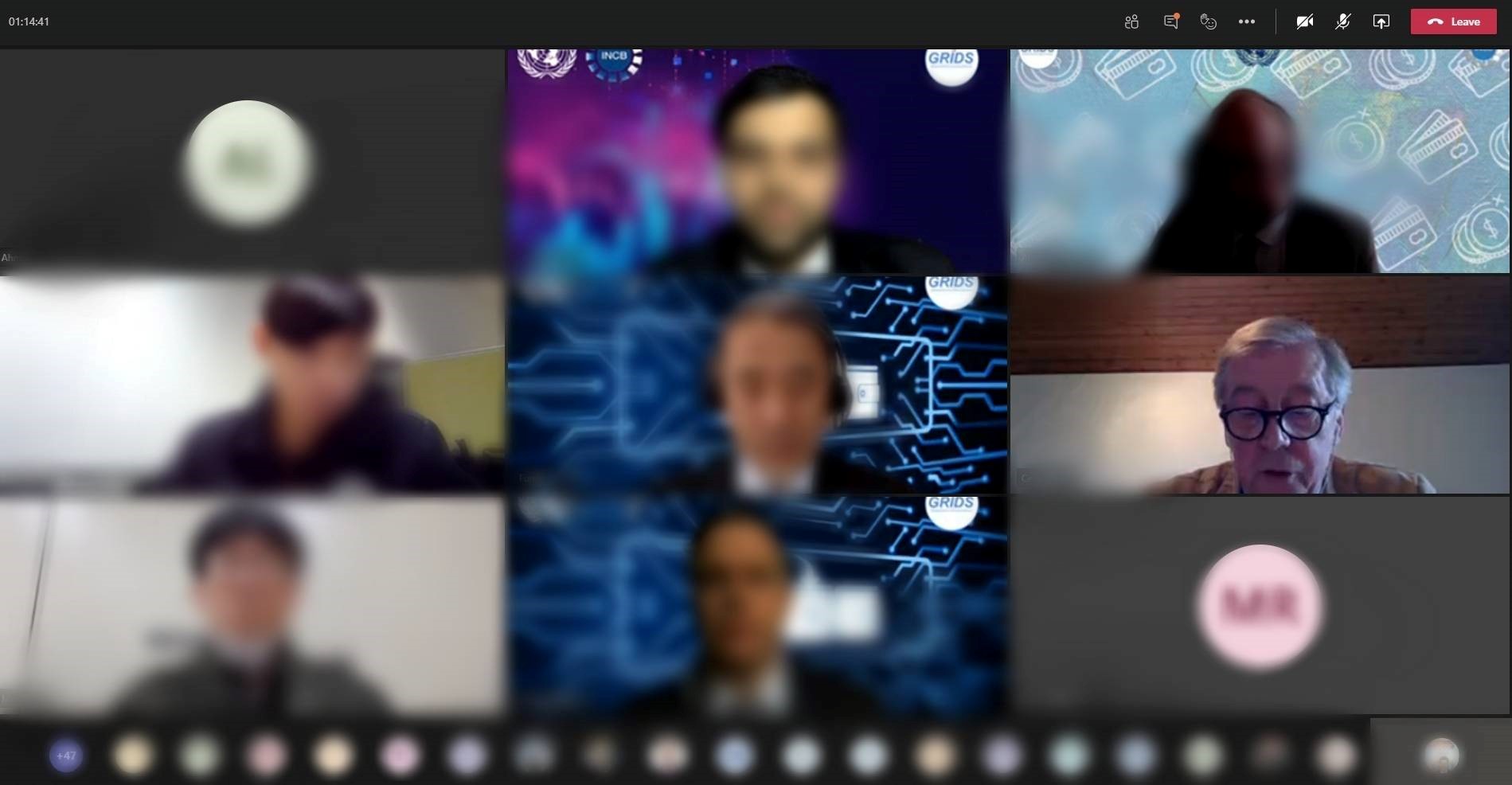INCB Stakeholders Consultation aims to prevent exploitation of
e-wallet services for trafficking in dangerous substances

VIENNA, 15 March 2021 - The International Narcotics Control Board (INCB) concluded a six-day Stakeholders Consultation on Trafficking of Dangerous Substances through Exploitation of E-Wallet Services. The meeting was organized under the auspices of INCB's Global Rapid Interdiction of Dangerous Substances (GRIDS) Programme.
The purpose of the consultation was to facilitate international public-private dialogue, raise awareness, share knowledge and best practices to further enhance cross sector collaboration, and recommend practical steps for future action to prevent the exploitation of legitimate e-wallet services of private companies. The advancement in payment systems technology through smartphones has had a manifold impact upon the way business transactions are conducted. Certain significant benefits for both vendors and buyers as compared to the traditional physical mode of selling has however been also mirrored by the potential for drug traffickers to abuse these systems for illegal purposes.
In order to prevent and reduce the potential impact of these dynamics, over 80 experts from Governments, international organizations and the private sector joined INCB to discuss trends and risks of the exploitation of e-wallet services for trafficking in dangerous substances and shared their ideas and solutions to prevent exploitation.
In his opening remarks, the President of INCB, Mr. Cornelis de Joncheere, highlighted the role of the GRIDS Programme in establishing public-private partnerships, stating: "GRIDS and other operational projects of the Board have set the promotion of public-private partnership among their priorities. In promoting public-private partnership to prevent dangerous substance trafficking, the Board is focusing on the four 'M's, which are the key areas exploited by drug traffickers, namely manufacture, marketing, movement and monetization," and reiterated that the Stakeholders Consultation intends to promote partnership in the area of monetization.
Mr. Masanobu Yamate, First Secretary of the Permanent Mission of Japan to the United Nations (Vienna) acknowledged INCB's achievements in public-private partnership promotion, concurring with "INCB's approach to the public-private partnership through being focused on the four key areas". Mr. Yamate also welcomed "INCB's initiative to facilitate discussion on how the exploitation of legitimate business can be prevented, while promoting legitimate business activities and human rights."
'Monetization' is one of the four key fields of the private sector which the GRIDS Programme is focused on. In this area, the GRIDS Programme aims to promote cooperation with various financial intermediary services, including credit card companies, international remittance services, and online financial intermediaries.
Building on the previous successes of INCB in facilitating public-private dialogue to address the exploitation of legitimate businesses for dangerous substance trafficking in the last decade, the meeting was held over six days, with participants adopting a set of non-binding practical recommendations for stakeholders.
INCB's Global Rapid Interdiction of Dangerous Substances (GRIDS) Programme is the Board´s global initiative addressing the international trafficking aspects of emerging dangerous substances. Launched in February 2020, GRIDS contributes to the implementation of United Nations General Assembly Resolution 73/192, which calls for international cooperation to address and counter the world drug problem, by responding to requests by Member States to enhance their law enforcement capacity to detect and identify new psychoactive substances and promote information sharing and cross-border cooperation, and CND Resolution 62/8.
The meeting was enabled with the generous support of the Government of Japan.